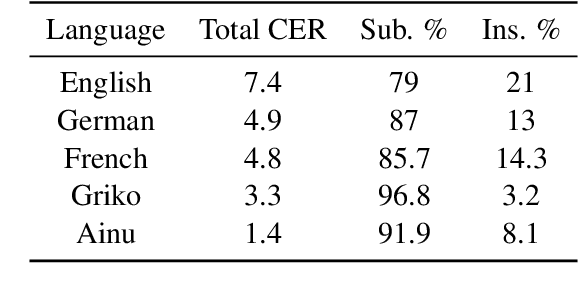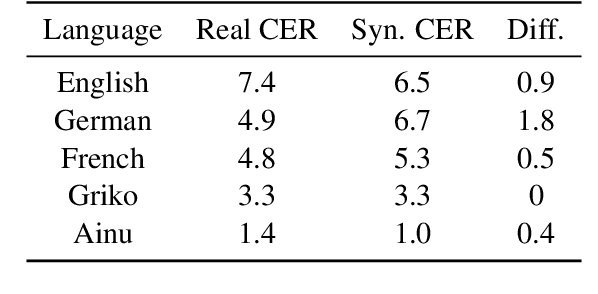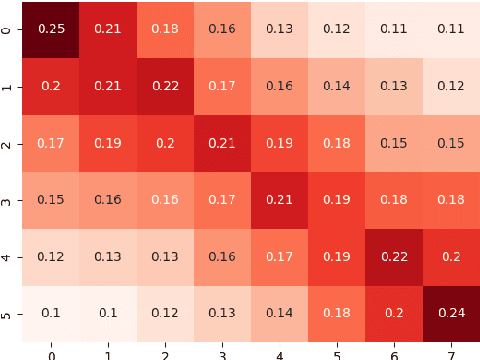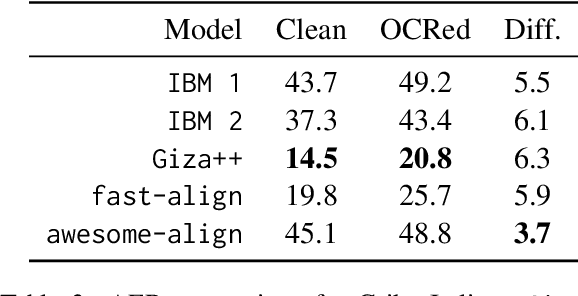Noisy Parallel Data Alignment
Paper and Code
Jan 23, 2023



An ongoing challenge in current natural language processing is how its major advancements tend to disproportionately favor resource-rich languages, leaving a significant number of under-resourced languages behind. Due to the lack of resources required to train and evaluate models, most modern language technologies are either nonexistent or unreliable to process endangered, local, and non-standardized languages. Optical character recognition (OCR) is often used to convert endangered language documents into machine-readable data. However, such OCR output is typically noisy, and most word alignment models are not built to work under such noisy conditions. In this work, we study the existing word-level alignment models under noisy settings and aim to make them more robust to noisy data. Our noise simulation and structural biasing method, tested on multiple language pairs, manages to reduce the alignment error rate on a state-of-the-art neural-based alignment model up to 59.6%.
 Add to Chrome
Add to Chrome Add to Firefox
Add to Firefox Add to Edge
Add to Edge